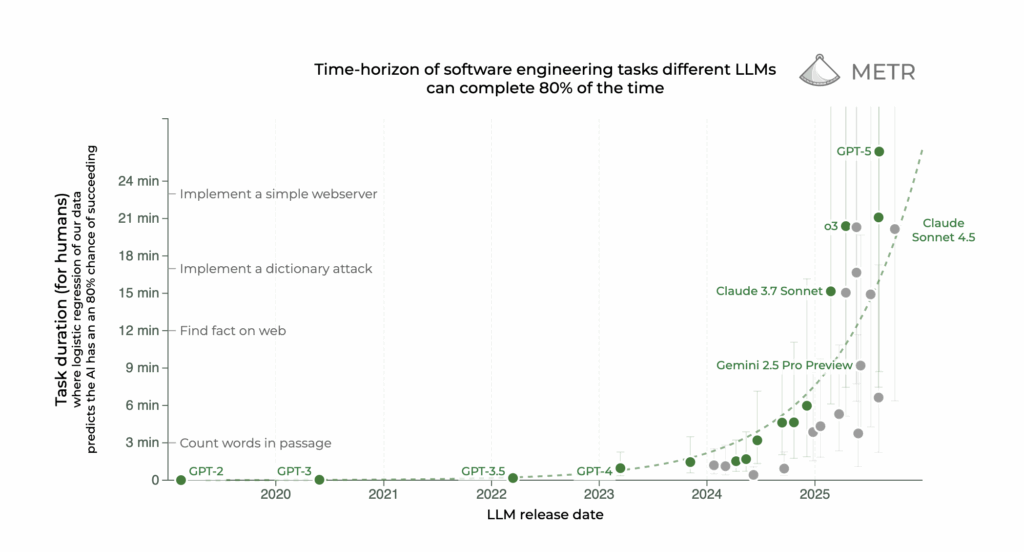When Disney launched Disney+ in 2020, it came to market with a really low price: $6.99 per month. The strategy was obvious—use a bargain price to quickly build a subscriber base and compete with Netflix.
It worked. Families eagerly added Disney+ to their lineup of streaming services, drawn by its deep library of shows and movies. But as the platform grew, investors started pushing Disney to make the service profitable. Over the next few years, Disney steadily raised prices. Today, the ad-free tier costs nearly three times what it did at launch.
This story isn’t just about streaming. It’s a preview of what’s coming with AI services.
⸻
The $20 Benchmark for AI
When OpenAI launched ChatGPT Plus at $20 a month, it wasn’t the product of intricate economic modeling. Instead, it reflected an attempt to recoup some of the enormous costs behind the scenes—training models, running massive server farms, and paying world-class researchers.
That $20 price point quickly became the de facto benchmark for consumer-facing AI tools, with Anthropic and others adopting similar rates.
But OpenAI has been clear that its ambitions go far beyond the current offering. Its Stargate initiative involves building massive infrastructure, partnering globally, and spending billions on data centers. At some point, investor money won’t be enough—they’ll need sustainable revenue.
And just like Disney, the path is clear: grow the subscriber base, then gradually raise prices once users view the product as indispensable.
⸻
The Coming Price Climb
Right now, $20 a month feels reasonable. But look ahead 5–10 years. As AI capabilities expand, it’s easy to imagine prices climbing to $50, $60, or even $100 per month.
For individual consumers, that may be tough to swallow. A household with multiple subscriptions could find itself spending several hundred dollars a month on AI tools.
For businesses, however, the math looks different. If AI can make an employee just 10% more productive, the return on investment is obvious. An employee earning $60,000 annually who produces the equivalent of $66,000 in value thanks to AI easily justifies a $100 subscription. For programmers or knowledge workers achieving productivity gains of 50% or more, companies might begrudgingly pay hundreds—even thousands—per employee, per month.
The economics are compelling, and the pressure to raise prices is certain.
⸻
AI-Adjacent Tools Will Follow
This dynamic won’t be limited to large language models. AI-adjacent tools—platforms like Jira or Siteimprove—are racing to integrate AI features into their products. The added capabilities will deepen customer reliance. But once the early adoption phase passes, I expect these vendors to raise prices as well.
It’s the same playbook: demonstrate new value, increase lock-in, then adjust pricing upward.
⸻
The Staffing Equation
All of this has implications beyond budgets. If AI makes employees 50% more efficient, organizations will rethink staffing structures. Efficiency gains don’t automatically translate into cost savings unless roles are consolidated or organizations grow.
Take three departments, each with a similar role. If AI tools boost each person’s productivity by 50%, the organization suddenly has capacity for 4.5 units of work when only three are needed. The logical response is to reduce headcount—perhaps to two positions covering all three departments. But that requires some degree of centralization to realize these gains. Better options include company growth or redeploying personnel in areas of need or opportunity. There will be disruption of the workforce, but it doesn’t have to lead to layoffs.
⸻
Planning for the Future
The lesson from Disney+ is clear: early low prices are temporary. AI services are following the same trajectory, and organizations should prepare now.
- Expect rising subscription costs—both for core AI platforms and for AI-enhanced tools.
- Budget for increases of 50% or more annually over the next few years.
- Plan staffing structures to capture the efficiency gains AI makes possible. I’m sure companies will prefer growth and redeployment, but that’s not always assured.
AI will reshape productivity in profound ways. But as with streaming, the honeymoon pricing phase won’t last forever.

